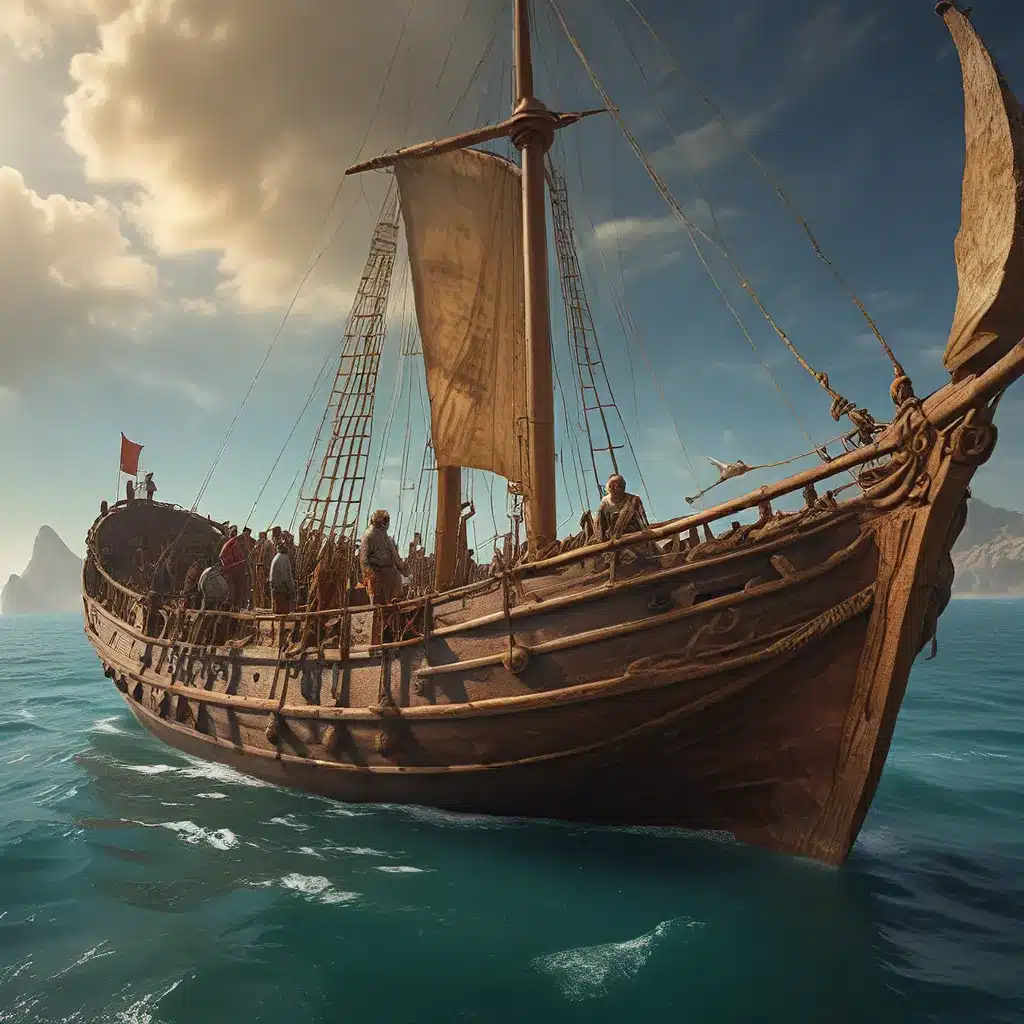
The Allure of Atlantis: Separating Fact from Fiction
The legend of Atlantis, a lost city of unparalleled splendor and advanced civilization, has captivated the human imagination for centuries. This enigmatic tale of maritime mystery, first introduced by the ancient Greek philosopher Plato around 360 BCE, has since evolved into a symbol of mystery, ambition, and the relentless pursuit of the unknown.
Plato’s narrative unfolds as a cautionary tale, where the Atlanteans’ excessive ambition and moral decline lead to their catastrophic downfall. According to his account, Atlantis was a powerful and technologically advanced civilization situated beyond the Pillars of Hercules, likely referring to the Strait of Gibraltar. Described as a utopian society ruled by wise kings descended from the god Poseidon, Atlantis was said to be a land of prosperity with grand architecture, advanced knowledge, and a formidable military. However, the city, Plato claimed, sank into the depths of the sea in a single day and night, disappearing without a trace.
The historical validity of Atlantis has been a subject of contentious debate. While some enthusiasts and researchers view Plato’s account as a distorted retelling of actual historical events, many scholars argue that Atlantis is a myth created by Plato to illustrate his philosophical concepts. The absence of concrete evidence and the fantastical elements in the narrative make it challenging to establish Atlantis as a tangible historical location.
Over the centuries, various theories have emerged regarding the potential location of Atlantis. Some suggest it could be in the Mediterranean, the Caribbean, or Antarctica. However, the lack of archaeological evidence supporting these claims has left the existence of Atlantis firmly in the realm of speculation.
Technological Advancements and the Exploration of the Deep
Despite the absence of empirical proof confirming the existence of Atlantis, the allure of the lost city persists, fueling ongoing efforts to uncover the truth. Technological advancements have allowed researchers to survey the ocean floor more precisely, discovering previously unknown underwater features. These advancements, coupled with the relentless curiosity of modern explorers, have opened up new avenues for the search for Atlantis and other ancient maritime mysteries.
Ocean exploration has become a dynamic and exciting field, with new discoveries and explorations happening every day. Advances in technology, such as remotely operated vehicles (ROVs) and autonomous underwater vehicles (AUVs), have enabled scientists to explore the depths of the ocean in ways that were previously unimaginable. These technological breakthroughs have not only aided the search for Atlantis but have also uncovered a wealth of information about the marine environment, its ecosystems, and the potential resources it holds.
The Lost Kingdoms website has been at the forefront of reporting on these exciting developments, providing readers with in-depth coverage of the latest discoveries and advancements in the field of ocean exploration.
Exploring the Depths: Uncovering Unexpected Finds
As researchers continue to push the boundaries of ocean exploration, they have encountered a wide range of unexpected and often bizarre discoveries. The National Oceanic and Atmospheric Administration (NOAA) Ocean Exploration program has been at the forefront of these explorations, showcasing the remarkable diversity and complexity of life in the deep sea.
One such discovery that has captured the public’s imagination is the bioluminescent sea creatures found in the ocean’s depths. These glowing creatures, from the eerie anglerfish to the mesmerizing barreleye fish, have revealed the incredible adaptations and survival strategies of life in the lightless, high-pressure environment of the deep ocean.
Beyond the realm of marine life, ocean exploration has also yielded insights into the Earth’s geological and climatic history. Researchers have discovered ancient hydrothermal vents, massive underwater mountains, and evidence of past climate changes, all of which contribute to our understanding of the planet’s evolution.
The Ongoing Quest: Collaboration, Innovation, and the Future of Ocean Exploration
The search for Atlantis and the exploration of the deep ocean have been marked by a strong spirit of collaboration and innovation. Partnerships between government agencies, academic institutions, and private organizations have been crucial in advancing our knowledge of the marine environment and driving the development of new technologies.
As the field of ocean exploration continues to evolve, researchers and explorers are constantly pushing the boundaries of what is possible. From the development of advanced underwater drones to the use of artificial intelligence and machine learning in data analysis, the tools and techniques employed in modern ocean exploration are truly remarkable.
Looking to the future, the potential for further discoveries and the unlocking of the ocean’s secrets remains immense. The Lost Kingdoms will continue to follow the progress of these exciting endeavors, providing readers with cutting-edge insights and the latest updates from the frontiers of ancient maritime exploration.
Conclusion: Embracing the Unknown, Preserving the Past
The search for Atlantis and the exploration of the deep ocean have captured the human imagination for centuries, embodying our innate curiosity and desire to unravel the mysteries of the past. As technology continues to advance and new discoveries emerge, the allure of these ancient maritime civilizations and the secrets of the deep sea remains as strong as ever.
Through collaborative efforts, innovative approaches, and a steadfast commitment to understanding our world, the pioneers of ocean exploration are unlocking the hidden wonders of the underwater realm. Whether it is the elusive Atlantis or the diverse and often bizarre ecosystems of the deep, these endeavors hold the potential to not only expand our knowledge but also inspire future generations to embrace the unknown and preserve the past.
The journey of maritime exploration is far from over, and The Lost Kingdoms looks forward to continuing to share the captivating stories, groundbreaking discoveries, and the sheer human spirit that drive this ever-evolving field of study.


